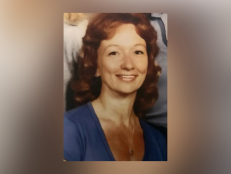'In The Dark': Curtis Flowers May Be Tried For The Same Murder For The 7th Time
The prosecution says Curtis Flowers, a former Tardy Furniture Store employee who was let go weeks before, was angry and committed the crime out of revenge.
![Curtis Flowers [Mississippi Department of Corrections]](http://investigationdiscovery.sndimg.com/content/dam/images/investigationdiscovery/crimefeed/legacy/2018/10/Curtis-Flowers-10022018.gif.rend.hgtvcom.616.347.suffix/1538513163522.gif)
Curtis Flowers [Mississippi Department of Corrections]
WINONA, MS — Curtis Flowers has been tried for a brutal quadruple homicide six different times, and he may now be granted a seventh trial after his 22-year legal saga recently took yet another surprising turn. Is the Mississippi gospel singer guilty of murder — or the innocent victim of the system and small town justice?
On the morning of July 16, 1996, Sam Jones, a retiree who had worked at Tardy Furniture Store for 50 years, arrived at the downtown Winona shop to help out owner Bertha Tardy train a couple new deliverymen she had just hired. When he walked in the door, Jones noticed the place was quiet. Then he heard something strange. "This noise [was] like somebody trying to catch their breath," Jones recalled. "I walked on a little further, and I heard it again. I looked down, and I saw what it was."
Jones had located 16-year-old Derrick “Bobo” Stewart, one of the two new employees, covered in blood and barely clinging to life. In the front of the shop he found the bodies of Carmen Rigby, 45, a longtime Tardy Furniture Store employee, and the other new deliveryman, Robert Golden, 42. Last, Jones discovered his former boss, Bertha Tardy, 59, also deceased, lying not far from her office in the back. "After I figured I wasn't dreaming, well, I ran to get help for Bobo," he said. The teen wouldn’t survive.
In October 1997, Flowers’ six-trial odyssey through the legal system began. Though Flowers has always maintained his innocence, District Attorney Evans has insisted for decades the case is solved despite the fact he has never had any solid physical evidence to present jurors — no gun, no fingerprints, and no solid eyewitnesses.
The prosecution theorized Flowers, a former Tardy Furniture Store employee who was let go weeks before the murders, was angry and committed the crime out of revenge. But the defense argued Flowers actually didn’t care at all about the job and worked there a total of just 18 hours over three days. He also had an alibi: Flowers had spent time at home and at his sister’s house the morning of the murders.
District Attorney Evans’ case, honed and refined over the course of Flowers’ multiple trials, was largely based on witnesses recounting how they had seen Flowers, then 26, walking around his hometown around the time the murders were committed. Evans said Flowers had stolen a gun, which they claimed was the murder weapon, from a parked car at the Angelica sewing factory. The prosecutor then used Flowers’ supposed confessions to jailhouse informants as proof of the defendant’s guilt.
Flowers was found guilty at his first three trials, but the Mississippi Supreme Court ruled the first two were tainted by District Attorney Evans’ misconduct. During the third, justices said, he had purposely kept African-Americans from serving on the jury. The next two trials ended in hung juries, split mostly along racial lines, and the sixth resulted in a guilty verdict, though critics point out the case was tried using tainted witnesses.
In a twist that could usher in another trial, the investigation was recently featured on the American Public Media podcast In the Dark. During the course of their yearlong investigation, the show’s reporters methodically examined the prosecution’s case, starting with the eyewitness testimony of Clemmie Fleming and Roy Harris that the D.A. used to convict Flowers in the first trial.
Fleming and Harris testified that on the morning of the murders they were driving in a car together and saw someone running near the crime scene. Fleming, said Harris, told him the man was Flowers, whom she knew. However, it later emerged, Fleming didn’t talk to investigators until almost nine months after the murders, raising questions of how she could possibly recall the date she spotted Flowers. Worse for the prosecution, Harris partially recanted his story and even testified at the second trial that on the morning of the Tardy Furniture Store killings, Fleming wasn’t with him. According to the podcast, “after Roy changed his story, investigators moved to make sure Clemmie's version of events remained the same.”
Prosecutors also relied on jailhouse informants Maurice Hawkins and Frederick Veal during that first trial to state Flowers admitted to them while at Leflore County Jail that he murdered the four victims. However, both men eventually recanted their testimonies. In an affidavit, Hawkins, who has since died, admitted, "Flowers never told me that he killed anybody.” Veal said, "I didn't tell them that he confessed. They came to me and told me what to say.”
Despite the setbacks with the witnesses, Prosecutor Evans was able to rely on Odell “Cookie” Hallmon, Jr., in four subsequent trials. Though he at first testified for the defense, Hallmon eventually flipped, claiming Flowers manipulated him and asked him to murder a witness in the Tardy Furniture Store case. He then said Flowers confessed to the crime — providing the prosecution with their only non-circumstantial evidence. But Flowers’ legal team noted Hallmon, now serving multiple life sentences for murdering three people after testifying in Flowers’ sixth trial, had an extensive rap sheet and long history of securing deals with prosecutors in exchange for his testimony. In the Flowers case, reported In the Dark, Hallmon was able to escape punishment in seven felony cases.
"What it boils to," defense attorney Ray Charles Carter told the court during Flowers’ third trial, "[is] that ... they are trying to take this case beyond circumstantial evidence. And they are so desperate to do it that they are willing to call a guy that has taken the witness stand and told a totally different story before.”
He may be right. In the Dark producers obtained an on-the-record admission from Hallmon stating his testimony was false. “…You’re telling me [Flowers] killed some people. Hell, no. He ain't never told me that. That was a lie,” he said. The revelation, the podcast noted, “could lead an appeals court to throw out Flowers' conviction.”
In fact, Flowers’ defense team is preparing a new appeal based on "stunning new evidence,” including the identity of and interview tapes from a possible suspect who lived across from Tardy Furniture Store they claimed investigators failed to provide, “[that] has come to light which underscores the need to give [Flowers] a full and fair opportunity to litigate his post-conviction claims.”
While the possibility of a seventh trial looms, Flowers, now 48, continues to serve time on Death Row at Mississippi’s Parchment Prison, where he’s in solitary confinement.
"There are a lot of people who say, 'I'd have gone crazy," Flowers’ mom, Lola, who recently passed away, said of supporting her son through the years. "I say, 'No, God's going to work this thing out.' I do believe. It might not be when we want to, but he's going to do. Curtis is coming out."
Read more: APM Reports, NPR, The New York Times, The Clarion Ledger, The Clarion Ledger (2)

![Selena receives a Grammy Award at The 36th Annual Grammy Awards in March 1994 [via Getty Images]](http://investigationdiscovery.sndimg.com/content/dam/images/investigationdiscovery/crimefeed/legacy/2021/03/getty-selena-quintanilla-perez-1309300538.png.rend.hgtvcom.231.174.suffix/1617128091576.png)


![David Dwayne Anderson (left) and Sylvia Quayle (right) [via the Cherry Hills Village, Colorado Police Department]](http://investigationdiscovery.sndimg.com/content/dam/images/investigationdiscovery/crimefeed/legacy/2021/04/sylvia-quayle-david-dwayne-anderson-040921.png.rend.hgtvcom.231.174.suffix/1617997281780.png)




